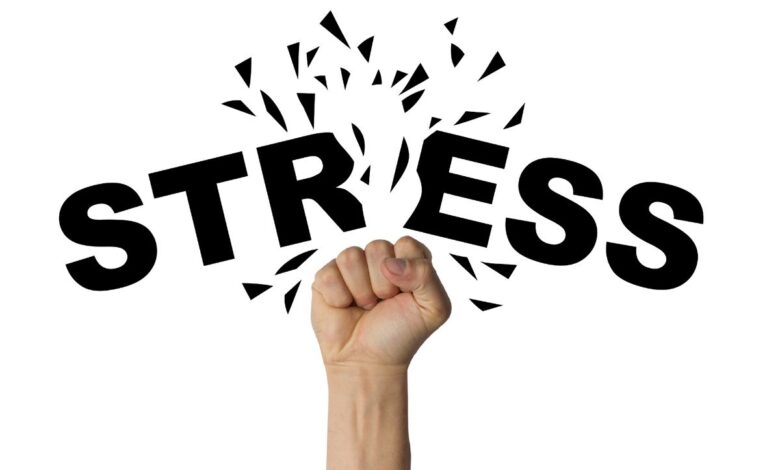Stress-Free Living: Practical Strategies for Effective Stress Management

Stress is an inevitable part of life. It can be caused by a variety of factors, such as work pressures, finances, relationships, and more. But learning how to manage stress effectively is essential for our well-being. In this article, we’ll explore the key elements of effective stress management so that you can start living a healthy and balanced life.
The first step in managing your stress levels is understanding what causes it in the first place. By identifying the source of your stressors and developing strategies to cope with them, you can begin to take control of your emotions. Additionally, knowing when to ask for help or support can make all the difference when dealing with overwhelming pressure or anxiety.
Taking time out from stressful situations and engaging in calming activities is also important for achieving balance in life. Whether it’s reading a book, going for a walk or practicing yoga – picking up hobbies that bring joy into your day can do wonders for reducing stress levels! With these tips under your belt, you will soon become better equipped at handling any difficult situation that comes your way.
What Is Stress
Stress is something that everyone experiences in different ways. It can be caused by things like work, relationships, family responsibilities, or even everyday worries. Stress can manifest itself both physically and emotionally, with symptoms such as headaches, tiredness, irritability, and low moods.
When experiencing high levels of stress for an extended period of time it can become a serious issue impacting overall health and well-being. That’s why it’s important to understand what the signs are so you can take steps to manage them effectively before they get out of hand.
Recognizing the warning signs of stress early on provides the opportunity to better manage its effects and prevent it from further developing into more serious issues down the line.
Recognizing Signs Of Stress
Stress is a natural part of life, but if left unchecked it can be detrimental to our mental and physical health. Knowing the warning signs of stress so you can take proactive steps to manage it is key for living a healthy life. It’s like being an early-warning system for yourself — always on the lookout for potential danger ahead!
Recognizing the signs of stress starts with understanding what your body and mind are telling you. Everyone experiences different symptoms when they’re feeling overwhelmed, so having an awareness of these clues will help determine when it’s time to take action. Here are some common ones:
• Physically: headaches, muscle tension or pain, fatigue, sleep disturbances, changes in appetite
o Headaches – Feeling frequent tension headaches? This might be your body’s way of alerting you that something needs attention.
o Muscle Tension/Pain – Is there tightness in your neck or shoulders that won’t go away? Pay close attention as this could signal chronic stress levels rising too high.
• Emotionally: anxiety, irritability, restlessness, difficulty concentrating
o Anxiety – Are you feeling anxious more than usual? Constant worrying can be a sign that it’s time to create space in your schedule to relax and recharge.
o Irritability – If even small things seem to set off negative reactions from you lately, then this could indicate higher levels of stress lurking beneath the surface.
These two lists only scratch the surface in terms of possible indicators – everyone’s experience will differ depending on their individual circumstances and environment. Keeping track of how you feel throughout each day helps build self-awareness which can lead to better decision-making down the line when managing stressful situations. Once we have identified our own unique signals we can start taking meaningful and effective action towards reducing our overall distress level and finding balance once again…without necessarily needing ‘In conclusion’ or ‘Finally’. Taking those first few steps towards healthier ways to cope with stress is an important part of maintaining well-being both now and into the future.
Healthy Ways To Cope With Stress
It can be difficult to know how to cope with stress when it creeps in, but there are healthy and effective ways to manage the pressure. While some people may think that turning to unhealthy coping mechanisms such as overeating or relying on drugs or alcohol is an easier solution – these behaviors will only lead to more problems down the road. Instead, it’s important to look for healthier alternatives that allow you to reset your equilibrium without causing further damage.
One of the best things you can do for yourself when feeling overwhelmed by stress is exercise. Going out into nature or getting active releases endorphins which naturally boost your mood while reducing cortisol levels associated with anxiety and depression. Another great way to reduce feelings of tension is journaling – writing out all of your thoughts and feelings can help get them off your chest and provide clarity about what needs attention. Practicing mindfulness techniques like deep breathing also helps create a sense of calmness no matter where you are or what situation you’re in.
You don’t have to go through this alone either – talking openly with friends, family members, or even trained counselors can make all the difference in helping identify triggers and work through challenges together. With those resources available, anyone looking for relief from stress can find numerous opportunities for growth and healing along their journey.
When To Seek Professional Help
When the stress in our lives becomes too much to handle on our own, it’s time to seek out professional help. It can be a difficult decision and an intimidating process for many of us. But ultimately, seeking assistance from someone trained in dealing with mental health issues is often the best way to get relief from extreme levels of stress.
There are several signs that you may need to turn to outside assistance: when your problems seem overwhelming; when activities that used to bring joy no longer do; or if you find yourself using unhealthy coping mechanisms like drinking alcohol or using drugs. If any of these situations apply to you, then taking steps toward getting professional help should be considered.
Some helpful methods for managing your stress include talking with a therapist, attending support groups, engaging in relaxation techniques such as meditation and deep breathing exercises, exercising regularly, eating well-balanced meals, and prioritizing restful sleep. All these practices provide positive outlets for releasing and processing tension while also improving overall well-being.
Taking preventative measures by focusing on self-care is key to avoiding excessive amounts of stress down the line. By reducing anxiety before it builds up into something unmanageable we reduce the chance of having to take drastic action later on.
Tips For Preventing Stress
The daily grind of modern life can be stressful and overwhelming. To prevent stress, it is important to take the time to care for yourself. Here are some tips that may help you find balance in your life while managing stressors:
First and foremost, make sure you prioritize your well-being. Take time out during each day to focus on activities that bring joy and relaxation – such as reading a book or taking a long walk. Additionally, practice healthy habits like exercising regularly, getting enough sleep, eating nutritious meals, and drinking plenty of water throughout the day. All these steps should support both physical and emotional health.
Another strategy for dealing with stress is to build strong relationships with supportive family members and friends. Connecting with those closest to us gives us an outlet where we can share our worries without judgment. Moreover, they provide invaluable advice which helps manage difficult situations better. Finally, having someone reliable who will listen when needed makes all the difference – especially if times get tough!
In order to keep stress levels low it’s essential not only to nurture your mental health but also to maintain good physical health through proper nutrition, exercise, and restful sleep. Spending quality time with loved ones provides comfort when things seem unmanageable, while self-care rituals offer moments of peace amid chaotic days. Taking these measures may help reduce feelings of worry and tiredness associated with increased strain from everyday occurrences.
Frequently Asked Questions
What Are The Long-term Effects Of Stress?
Stress is an ever-increasing problem in today’s society, and understanding its long-term effects can be essential for managing it. Take the case of Alice, a high school student who has been struggling with stress levels due to academic pressures from her parents. After months of enduring stressful situations, she begins to experience physical symptoms such as headaches and digestive issues, which are common signs of chronic stress.
Over time, these physical symptoms become more severe, leading to further psychological distress. She may start feeling anxious or depressed and have trouble sleeping and concentrating on the tasks at hand. Her relationships with family and friends might suffer because she doesn’t feel like interacting socially anymore. This could result in even more stress when trying to manage work and family responsibilities while also dealing with depression or anxiety. Furthermore, prolonged periods of unmanaged stress can lead to serious health risks such as heart disease and stroke.
It is important to understand that if left unchecked, the short-term effects of stress can quickly escalate into long-term consequences. It is therefore vital for individuals experiencing significant amounts of stress over a period of time to seek help from mental health professionals before things get out of control. Mental health support can provide effective strategies for managing stress through lifestyle changes, relaxation techniques, and cognitive behavioral therapy (CBT). Taking proactive steps towards reducing one’s own level of stress is key for preventing any potentially harmful impacts on their health in the future.
How Can I Tell If I’m Experiencing Stress Or Anxiety?
It can be difficult to tell the difference between feeling stressed and anxious, similar to trying to distinguish a storm cloud from a puff of smoke. Stress and anxiety are both forms of mental distress that can have serious long-term effects if left unmanaged.
Stress is more generally related to specific situations or events, while anxiety often feels like an underlying sense of dread regardless of the situation. When we feel overwhelmed by stress, our bodies react with physical symptoms such as headaches, difficulty sleeping, changes in appetite and fatigue. On the other hand, when experiencing anxiety we may experience restlessness, racing thoughts and irrational fears. Both conditions can lead us towards feelings of hopelessness and despair which should not be taken lightly.
It’s important to recognize how you’re feeling; if your emotions seem unusually intense for the situation at hand it could be a sign that something deeper is going on beneath the surface. Talking about these issues with friends or family can help put things into perspective and provide emotional support during times of struggle. There are also professional resources available such as therapy sessions or online forums specifically tailored towards managing stress or anxiety – seeking out these services might make all the difference!
What Lifestyle Changes Can I Make To Reduce Stress?
One of the most effective ways to reduce and manage stress is through lifestyle changes. Adjusting daily habits can be a great way to better cope with stress in life. This can include developing healthy eating habits, getting regular physical activity, taking time for yourself, and practicing relaxation techniques such as meditation or yoga.
Creating an environment that encourages self-care is important when it comes to reducing stress levels. For example, setting aside some ‘me’ time each day dedicated just for yourself can help you relax and unwind from any stressful situations throughout your day. Additionally, try to establish a consistent sleep schedule so that you are well-rested before facing more challenging tasks ahead. Exercise has also been shown to improve moods along with reducing tension and anxiety; even something as small as going on a walk or jog every other day can make a huge difference in how you feel overall.
When it comes to managing stress effectively, changing up one’s lifestyle habits can be incredibly beneficial. Taking care of oneself by establishing positive routines and activities in everyday life will not only provide more balance but also allow people to handle difficult times much easier than before. Being able to recognize the signs of stress early on and proactively making adjustments accordingly will eventually lead to improved mental health over time.
Conclusion
In conclusion, stress is an everyday challenge that affects us all. It’s important to recognize the signs of stress and take steps to manage it. There are healthy ways to cope with stress such as deep breathing exercises, physical activity, sleep hygiene and setting realistic goals. If you feel overwhelmed by your stress levels or are having difficulty managing them on your own then seeking professional help can be beneficial. Taking proactive measures such as mindfulness meditation and avoiding stimulants like caffeine can also help prevent further episodes of high-stress levels.
An interesting statistic that conveys a deeper meaning for our audience is that around 80% of workers in America experience work-related stress every day; this highlights the seriousness of how much strain we put ourselves under when trying to juggle life’s demands. My advice would be to find time for yourself each day and practice self-care techniques so that you have more energy and resilience to deal with difficult situations – whether at home or within the workplace.
It’s essential that everyone takes some time out from their busy lives to prioritize themselves and look after their mental well-being in order for them to lead happier healthier lives!




